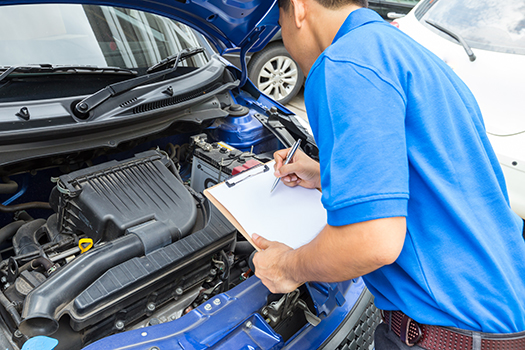In the realm of buying a car, the term “pre purchase car inspection” often emerges as a crucial step in ensuring a wise investment. This process involves a comprehensive evaluation of a vehicle’s condition before finalizing the purchase. It serves as a safeguard against unforeseen issues and offers invaluable insights into the true state of the vehicle.
Benefits of Pre-Purchase Car Inspection
Peace of Mind
One of the primary benefits of a pre-purchase car inspection is the peace of mind it provides to potential buyers. By conducting a thorough assessment, buyers gain confidence in their decision-making process, knowing they are making an informed choice.
Identifying Hidden Issues
Cars can often harbor hidden problems that may not be apparent to the untrained eye. A pre-purchase inspection helps uncover these issues, ranging from minor cosmetic defects to major mechanical faults, enabling buyers to address them before finalizing the purchase.
Negotiation Power
Armed with detailed inspection findings, buyers gain leverage in negotiations with sellers. Discovering issues allows buyers to negotiate a fair price based on the cost of necessary repairs or adjustments needed to bring the vehicle up to standard.
Safety Assurance
Safety should always be a top priority when purchasing a vehicle. A pre-purchase inspection helps ensure that the car is structurally sound and mechanically reliable, reducing the risk of accidents or breakdowns after purchase.
What Does a Pre-Purchase Car Inspection Include?
A typical pre-purchase car inspection encompasses various aspects of the vehicle’s condition, including:
Exterior Inspection
Inspectors thoroughly examine the exterior of the vehicle for signs of damage, rust, or previous repairs. This includes assessing the condition of the paint, body panels, lights, and tires.
Interior Inspection
The interior inspection focuses on the functionality and condition of components such as the dashboard, seats, upholstery, and electronics. Inspectors also check for signs of water damage or unusual odors.
Mechanical Inspection
A comprehensive mechanical inspection involves examining the engine, transmission, brakes, suspension, and other vital components for signs of wear, leaks, or malfunction. This step often includes diagnostic tests to assess the vehicle’s overall performance.
Test Drive
A test drive is a crucial part of the inspection process, allowing inspectors to evaluate the car’s handling, acceleration, braking, and overall driving dynamics. It provides valuable insights into the vehicle’s performance under real-world conditions.
Where to Get a Pre-Purchase Car Inspection?
Pre-purchase car inspections can be conducted by various entities, including:
Dealerships
Many dealerships offer pre-purchase inspections as part of their services, either for free or at a nominal fee. However, buyers should be aware of potential conflicts of interest, as dealers may prioritize sales over impartial evaluations.
Independent Mechanics
Independent mechanics or auto repair shops are popular choices for pre-purchase inspections due to their expertise and unbiased assessments. Buyers can choose a trusted mechanic to perform the inspection or seek recommendations from friends or family.
Mobile Inspection Services
Mobile inspection services provide the convenience of on-site evaluations, allowing buyers to schedule inspections at their preferred location. These services often utilize specialized equipment and experienced inspectors to deliver comprehensive assessments.
How Much Does a Pre-Purchase Car Inspection Cost?
The cost of a pre-purchase car inspection can vary depending on several factors, including the location, the inspector’s expertise, and the complexity of the evaluation. On average, inspections may range from $100 to $300 or more.
Factors influencing the cost include the type of vehicle, its age, mileage, and additional services requested, such as a comprehensive diagnostic scan or a detailed written report.
Tips for Hiring an Inspector
When choosing an inspector for a pre-purchase car inspection, consider the following:
Credentials and Experience
Look for inspectors with relevant certifications and extensive experience in automotive diagnostics and repair. A qualified inspector is more likely to identify potential issues accurately.
Reputation and Reviews
Research the inspector’s reputation and read reviews from past clients to gauge their reliability and professionalism. Positive feedback and recommendations indicate a trustworthy inspector.
Transparency and Communication
Choose an inspector who communicates openly and transparently throughout the inspection process. They should be willing to answer any questions and provide detailed explanations of their findings.
Common Issues Detected During Pre-Purchase Inspections
Pre-purchase inspections often uncover various issues that may affect the vehicle’s performance, safety, or resale value. Common issues include:
Mechanical Problems
Faulty engine components, transmission issues, and worn-out brakes are among the most common mechanical problems detected during inspections.
Accident History
Inspectors look for signs of previous accidents or collision damage, such as uneven panel gaps, paint overspray, or structural misalignment.
Frame Damage
Frame damage can compromise the structural integrity of the vehicle, leading to safety hazards and expensive repairs.
Flood Damage
Water damage from flooding can cause extensive electrical and mechanical issues, including corrosion, mold growth, and compromised safety systems.
What Happens After the Inspection?
After receiving the inspection report, buyers have several options:
Reviewing the Inspection Report
Carefully review the inspection report to understand the vehicle’s condition and the recommended repairs or maintenance tasks.
Negotiating with the Seller
Use the inspection findings as leverage to negotiate a fair price with the seller, taking into account any necessary repairs or adjustments.
Making an Informed Decision
Based on the inspection results and negotiation outcomes, buyers can make an informed decision whether to proceed with the purchase, renegotiate terms, or walk away from the deal.
Conclusion
In conclusion, a pre-purchase car inspection is a vital step in the vehicle-buying process, offering buyers peace of mind, protection against hidden issues, and negotiation power. By prioritizing inspections and hiring qualified inspectors, buyers can make confident and informed decisions when purchasing a car.
